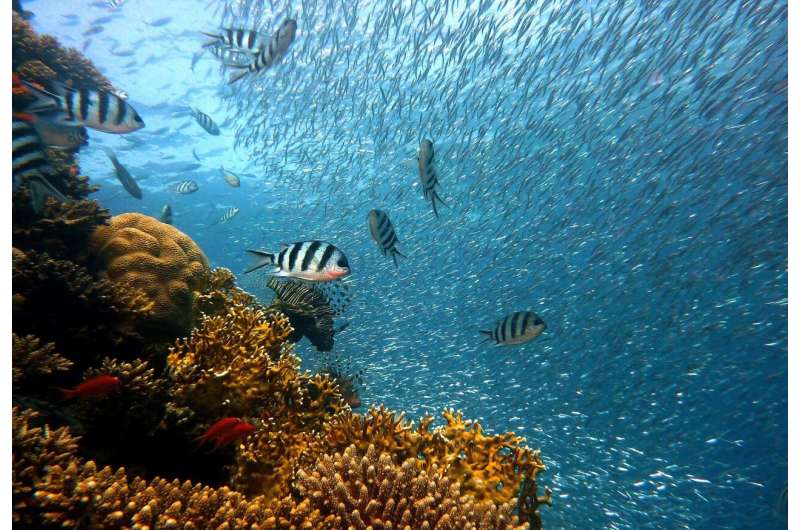This article has been reviewed according to Science X's editorial process and policies. Editors have highlighted the following attributes while ensuring the content's credibility:
fact-checked
peer-reviewed publication
trusted source
proofread
Community focused approaches to fisheries governance transform local perceptions

A new study from WCS reveals that community capacity-building interventions, even those with only indirect environmental links, significantly improved perceptions of fisheries management and conservation in coastal fishing villages in East Africa. The most notable positive changes were observed among women, youth, and initially skeptical communities.
This groundbreaking social change research shows that targeted educational and engagement efforts can overcome pervasive local challenges that can prevent needed fisheries management, offering new hope for effective, sustainable governance of small-scale fisheries.
"Small coastal fisheries are dynamic and complex and have been historically difficult to manage, due in large part to negative attitudes towards restrictions that are linked to poverty, low education, food scarcity, and limited livelihood options," said Dr. Tim McClanahan, Director of Science for WCS' Global Marine Program.
"Our study measured perceptions of fisheries management benefits before and after community engagement interventions—showing that negative perceptions that often lead to weak management of fisheries commons are actually malleable."
Researchers have long known that limited livelihood options can lead to resistance to imposing fisheries restrictions. Fishing communities are often in the difficult situation of needing to prioritize short-term food security needs over long-term management and sustainability goals, driving a cycle known as "the tragedy of the commons'' or a "poverty trap." This dynamic often hampers the sustainable management of marine resources and overall fishery productivity.
"What I find most hopeful from this research is that even interventions with no immediate obviously strong link to coastal management, such as training on fuel efficient cookstoves, financial literacy or theatrical skills, contributed to changing people's thinking about management rules," said Dr. Stacy Jupiter, Executive Director of WCS's Global Marine Conservation program.
"Supporting capacity building skills that help build local livelihoods and strengthen local governance can build trust and harmony within a community, which may help shift perceptions. These positive perceptions of management can then become contagious as community members influence their neighbors through social interactions."
The study, "Stimulating the Capacity to Govern the Commons" out this week in Conservation Biology, focuses on community-level interventions in communities who are highly dependent on coral reef fisheries along the Kenya-Tanzania border. These reefs are crucial for local communities where 70% of people consume fish daily.
Unrestricted fishing had previously led to significant losses of fish productivity, but through a WCS-led project, local conservationists were able to work closely with coastal communities to balance environmental and economic benefits, ultimately increasing fish yields and improving village perspectives on key fisheries restrictions.
The study found that nearly all perceptions of benefits increased over the two-year period, with the most significant changes observed among women and youth, as well as from villages using destructive fishing gear. Even initially-skeptical individuals came to embrace the value of strict restrictions, such as permanent fisheries closures and limitations on capturing threatened species.
While the study focused on perceptions rather than actions, the findings demonstrate that even very poor and otherwise marginalized households can change their views on fisheries management benefits through engagement and promoting good governance principles.
More information: T. R. McClanahan et al, Stimulating the capacity to govern the commons, Conservation Biology (2024). DOI: 10.1111/cobi.14333
Journal information: Conservation Biology
Provided by Wildlife Conservation Society




















